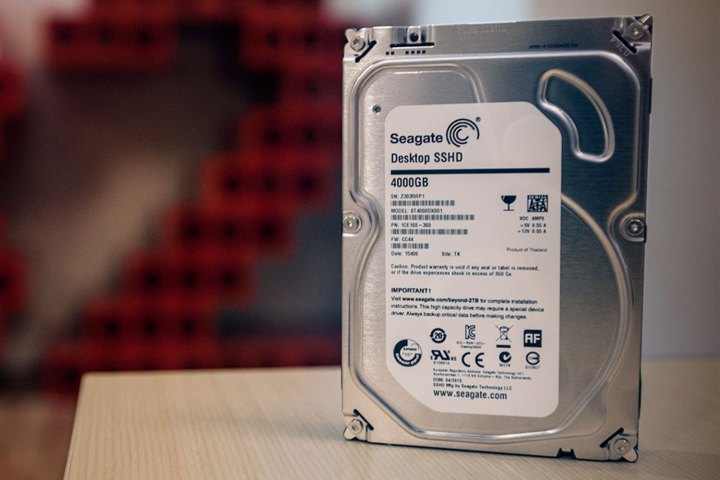
According to the report, the company saw an annualized failure rate of 19.81 percent with the Seagate ST4000DX000 4TB drive in a quantity of 197 units working 18,428 days. The next in line was the WD WD40EFRX 4TB drive in a quantity of 46 units working 4,186 days. This model had an annualized failure rate of 8.72 percent for that quarter.
The company’s report also notes that it finally introduced 8TB hard drives into its fold: first with a mere 45 8TB HGST units and then over 2,700 units from Seagate crammed into the company’s Blackblaze Vaults, which include 20 Storage Pods containing 45 drives each. The company moved to 8TB drives to optimize storage density.
According to a chart provided in the report, the 8TB drives are highly reliable. The HGST HDS5C8080ALE600 worked for 22,858 days and only saw two failures, generating an annualized failure rate of 3.20 percent. The Seagate DT8000DM002 worked for 44,000 days and only saw four failures, generating an annual failure rate of 3.30 percent.
The company backs its cumulative Annualized Failure Rate with “Drive Days,” meaning a day is recorded when the hard drive is present in the system. Thus, if the company installs a drive on July 1 but it fails on August 31, the company will mark down 62 days and one failure to the overall results of that specific model.
Overall, the company mainly relies on the Seagate ST4000DM000 4TB drive, with 34,693 units deployed consuming 50.4 percent of the company’s total hard drive count. In the Annualized Hard Drive Failure Rates chart, this model logged 16,688,047 days with 1,296 failures in the second quarter, generating an annualized failure rate of 2.70 percent.
Next in line is the HGST HMS5C4040BLE640 4TB drive with 8,473 units deployed, consuming 12.3 percent of the company’s total hard drive count. This drive model racked in 2,683,029 drive days with only 30 failures during the quarter, earning an annual failure rate of 0.4 percent.
Most of the hard drives in use are provided by Seagate and HGST although there are a few tossed in from WD and Toshiba as well. The company says that it has a hard time acquiring drives from Toshiba and WD for some reason, speculating that it could be due to poor availability or “an unexplained desire” to simply not sell drives to Backblaze. Thus, the company heavily relies on Seagate, which seems to do the job rather nicely.
“Sadly, we’ll be saying goodbye to the HGST 2TB drives, but we need the space,” the company states. “We’ll miss those drives; they were rock stars for us. The 4TB Seagate drives are our workhorse drives today and their 2.8 percent annualized failure rate is more than acceptable for us. Their low failure rate roughly translates to an average of one drive failure per Storage Pod per year.”
Ultimately, the company acknowledges that 8TB hard drives have arrived and seem to be extremely reliable … or as the company puts it, “looking good.” We’ll find out more when the firm releases its follow-up report next quarter.


